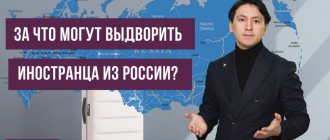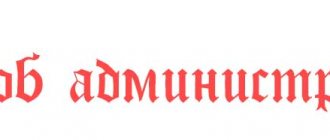Suspension of a criminal case under the Code of Criminal Procedure of the Russian Federation is a procedural decision that allows you to temporarily stop an investigation due to the presence of objective obstacles to carrying out investigative actions. Making such a decision (resolution) is possible only in cases expressly provided for in Art. 208 Code of Criminal Procedure of the Russian Federation. As soon as the grounds for suspension of proceedings no longer exist, the investigation must be resumed and continued.
The head of the investigative agency or the supervising prosecutor should do the same if the criminal case is suspended illegally or unreasonably. The period during which the investigation was suspended is not taken into account when calculating the duration of the investigation. Under certain conditions (search for a suspect or accused), it will not be taken into account when calculating the statute of limitations for criminal prosecution.
Grounds and procedure for suspending the investigation
All grounds are established by Art. 208 Code of Criminal Procedure of the Russian Federation. The list is exhaustive and includes 4 items:
- It was not possible to find the person who committed the crime - that is, it was not solved. This is the most common basis for suspending a criminal case. In the professional environment, such cases themselves are called “dark”, and the crime is called committed in conditions of non-obviousness.
- The suspect or accused has disappeared from the investigation, or it is impossible to determine where he is. As a rule, those who are under recognizance not to leave are hiding. Sometimes suspects “disappear” against whom criminal prosecution has been initiated, but they do not know about it or do not want to appear before the investigator. Often, the perpetrators simply go abroad, and there is no possibility (international treaty) for their extradition, or this is denied to Russian law enforcement agencies. It also happens that a person simply deliberately hides from the investigation, changes his place of residence and hides. In any case, the suspect (accused) is put on the wanted list (regional, federal, international) during the investigation or immediately after the suspension of the criminal case. Operational search activities within the framework of the search case are carried out by operational officers.
- There is no real possibility of the suspect (accused) participating in investigative (procedural) actions, although he is not hiding and his whereabouts are known. This is perhaps the most controversial basis for suspending a criminal case. If desired, it can be applied to a variety of circumstances. But if we talk about truly justified situations, it usually means that the suspect (accused) is on a business trip (departure) without the opportunity to promptly appear before the investigator. Illness is also allowed as a basis - one that interferes with participation in a criminal case, but is not a temporary serious illness, that is, it does not fit under clause 4 of Art. 208 Code of Criminal Procedure of the Russian Federation.
- The suspect (accused) is temporarily seriously ill, which is confirmed by a medical report and prevents participation in procedural actions. As a rule, here we are talking about a person being in a hospital, less often – about outpatient treatment. In the latter case, a doctor’s opinion is required about the impossibility of the suspect (accused) to participate in a criminal case due to health conditions.
The same, 208th, article of the Code of Criminal Procedure of the Russian Federation, as well as Art. 209 of the Code of Criminal Procedure regulate the procedure for suspending a criminal case.
Suspension of a criminal case due to failure to identify the person to be charged as an accused and in connection with the search for the suspect (accused) is possible only after the expiration of a 2-month investigation period. For other reasons, there is no such condition - a decision can be made as soon as a reason for this appears.
Procedure for making a decision:
- The decision is made by the investigator in charge of the criminal case.
- Participants in the process are notified of the decision made.
- A copy of the decision is sent to the prosecutor. Subsequently, the criminal case is also sent to the prosecutor, but, as a rule, together with other cases suspended during the reporting period or requested for inspection in the order of supervision.
If it is necessary to suspend a criminal case on the grounds of Art. 2-4. 208 of the Code of Criminal Procedure of the Russian Federation (search, illness, temporary inability to participate in the investigation) and if there are several suspects (accused) in the case, the issue of separating a criminal case should be considered. In this case, the criminal case planned for suspension is singled out, and proceedings against other persons continue as usual. True, whether or not to single out a case is the right, not the duty of the investigator. Usually, the issue is resolved based on the situation, taking into account the timing of the investigation, preventive measures, the duration of detention, and in general the advisability of separating the case.
Another issue that must be resolved is the seizure of property and the restrictions imposed in connection with this. The arrest can be maintained or lifted, and the list and content of restrictions can also be changed.
And finally, the advisability of further application of state protection measures to the persons involved in the case should be considered. The application of such measures may be continued or they may be completely or partially cancelled.
Decisions related to the seizure of property and the application of state protection measures must be legal and justified. Interested parties are notified of decisions made.
Suspension of a criminal case by the court
A criminal case can be suspended not only during the investigation, but also during the trial. The same reasons are used here, with two exceptions:
- A “dark” criminal case cannot go to court, so the ground – failure to identify the person to be brought in as a suspect (accused) – disappears by itself.
- Art. 238 part 1 clause 3 of the Code of Criminal Procedure of the Russian Federation establishes a special basis for suspending proceedings in court - a judicial request has been sent to the Constitutional Court of the Russian Federation or a complaint has been accepted by it on the issue of compliance with the Constitution of the Russian Federation of the law (legal norm) to be applied in a criminal case.
The remaining grounds are the same as for the preliminary investigation: suspension of the criminal case due to the illness of the defendant, his search, or temporary inability to participate in the process. However, the court does not have the right to suspend proceedings in connection with the search for the defendant or due to the lack of a real possibility of his participation in the process, if any party filed a motion to consider the case in accordance with Part 5 of Art. 247 Code of Criminal Procedure of the Russian Federation. This rule allows, in exceptional cases, the conduct of a trial in the absence of the defendant, but only for grave and especially grave crimes.
When is suspension possible under the Code of Criminal Procedure of the Russian Federation?
The procedure for investigating a criminal case is strictly regulated. There are certain stages, the presence of which is mandatory.
Thus, the beginning of a criminal investigation is called its initiation. From this moment the preliminary investigation begins. Sometimes it is called pre-trial. At this stage, the task of the investigation is to identify suspects, collect the necessary evidence, and prepare for filing charges.
Free legal consultation
+8 800 100-61-94
In accordance with the norms of the Code of Criminal Procedure of the Russian Federation, preliminary investigation is carried out in two forms:
- Inquiry . An inquiry involves a somewhat simplified procedure for investigative actions. It is carried out only when investigating crimes of minor gravity. A complete list of relevant criminal offenses is contained in Art. 150 Code of Criminal Procedure of the Russian Federation.
- Preliminary investigation. It is the main form of investigation of criminal cases. Carried out in strict accordance with the norms and procedures provided for by current legislation. A preliminary investigation is carried out in the investigation of grave and especially grave crimes, as well as criminal acts of moderate gravity in the presence of certain circumstances.
The current law establishes that the pre-trial investigation must be carried out within a certain time frame. They are provided for by the Code of Criminal Procedure of the Russian Federation. After their expiration, the criminal case must be terminated or the suspect is assigned the status of an accused, and the materials collected by the investigation are sent to the court.
Thus, the inquiry must be carried out within 30 days. The investigation is completed within 2 months. In this case, the countdown begins from the moment the criminal case is initiated.
Attention! In some cases, with the consent of the prosecutor, these deadlines may be extended if there are valid justifications.
However, due to objective reasons, sometimes the investigation cannot be completed within the time frame established by law. In this case, a decision may be made to suspend the criminal case.
In practice, suspension means that within the framework of an existing criminal case, all investigative actions as such are stopped. In addition, the period during which the case must be considered is “frozen” for a certain period.
It is important to distinguish suspension from termination of a criminal case. When suspended, the criminal prosecution essentially continues, and if the circumstances interfering with the investigation no longer exist, the procedural actions will continue. Upon termination, the criminal prosecution of the person ends, as a rule, without any negative consequences for him.
Resuming a suspended investigation
Resumption of a criminal case after suspension is possible at any time. Reasons for this:
- The reasons why production was suspended have disappeared.
- There was a need to carry out some investigative actions.
- The prosecutor or the head of the investigative body canceled the decision to suspend the criminal case, considering it illegal or unfounded.
Participants in the process may take the initiative to resume suspended proceedings. Often the injured party is most interested in this. It is important for her that the unsolved crime is solved, the wanted person is found quickly, and in general there is no red tape in the case.
Despite the fact that this is not directly mentioned in Art. 211 of the Code of Criminal Procedure of the Russian Federation, among the grounds for resuming proceedings, the reason for this may be a complaint by an interested person against a decision to suspend the criminal case. The complaint should be addressed to the prosecutor's office, indicating why you consider the investigator's decision to be illegal or unfounded. You can appeal the investigator's decision to his superior.
If the prosecutor's office cancels the decision to suspend the investigation, it must set out not only the reasons for such a decision, but also instructions on the necessary investigative actions.
From the moment the proceedings are resumed, a 1-month investigation period is established. It can be extended in the general manner.
How does the production stop procedure work?
The procedure for suspending a criminal case is regulated by procedural legislation.
Thus, at the stage of preliminary investigation, the investigator makes the appropriate decision. He issues a ruling on this. The document must be sent to the prosecutor. It is after the prosecutor's sanction that the case is considered suspended.
Important! If several persons appear as suspects in a criminal case, then the decision to suspend is made only in relation to those of them in respect of whom it is impossible to carry out investigative actions. Accordingly, the investigator retains the right to separate the case against them into separate proceedings.
The decision to suspend at the trial stage is made by the judge alone.
In cases where the case is suspended due to the fact that the defendant has disappeared, the judge sends the case materials to the prosecutor for the latter to decide on the search. In addition, if the defendant was previously at large, the judge chooses a preventive measure in the form of keeping the escaped person in a pre-trial detention center. This means that immediately after being caught, he will be placed in isolation, where he will await trial.
Some important nuances of the practice of suspending criminal cases
The main problem with suspended criminal cases is the red tape involved:
- If the crime is not solved “hot on the trail,” there is a high probability that the further investigation will proceed superficially, without much effort. Will the operational service solve the crime - well, no - the case will lie like a dead weight until it is suspended.
- With wanted persons, the situation is almost the same: if the first steps did not yield anything, then the investigation will rely only on operatives. In this case, you can only hope that the federal or international search will yield something.
- The illness of the suspect (accused) or his inability to participate in the investigation are special grounds. Sometimes they are used to delay the proceedings, including by the guilty parties, and a suspended criminal case may be “forgotten.”
Basically, red tape is allowed for ordinary crimes - for which there is no particular resonance, which are commonplace and routine. When the investigator's workload is high, he is not interested in dealing with suspended cases or cases that could potentially be suspended. Moreover, the terms of detention are monitored by the prosecutor's office much more strictly than the terms of the investigation. Suspended cases, as a rule, are checked by the prosecutor's office in batches, and are resumed with the cancellation of the suspension order for the sake of their performance indicators. Therefore, the initiative in resuming criminal cases should be taken, first of all, by victims and civil plaintiffs.
What does judicial practice show under this article?
Judicial practice shows that the suspension of the investigation most often affects serious and especially serious crimes. The fact is that having committed a serious violation of the law, the criminal understands that he faces a long prison term, and in order to avoid such a fate, he hides from the investigation. In cases of moderate gravity, investigations are suspended less frequently.
The principle of suspending a case can be considered using the example of an article for murder. Citizen Petrov, being in a drunken stupor, stabbed his neighbor in the chest several times with a knife. Realizing what he had done, he ran away from the victim’s apartment. Coming out of the entrance, he was noticed by neighbors, who called the police, because he was covered in blood and threw the knife into the trash.
Investigators who arrived at the scene of the incident carried out all the necessary procedures and initiated criminal proceedings. The identity of the culprit was known, but the place of residence could not be established for two months. The investigator decided to suspend the investigation and issued a resolution to put the subject on the wanted list.
Six months later, the subject gave himself away by paying with an old credit card in one of the stores in a neighboring city. The investigator resumed the proceedings and sent the body of inquiry to the place of the criminal’s last stay. As a result, the latter was detained and handed over to the court, since his guilt was fully proven.
What decisions are most often made under Article 208 of the Code of Criminal Procedure?
Suspension of investigative actions is a fairly common procedural procedure. It is not always possible, even with the active work of law enforcement agencies, to establish the identity of the culprit, his location and solve the crime. If there is no opportunity to close the case, then the investigator makes a forced pause in the investigation. It makes it possible to free up time to work on other criminal proceedings in which there are no obstacles to bringing them to trial.
Suspension of proceedings is possible not only at the stage of preliminary investigation, but also at the stage of trial.
Problems of application of Article 208 of the Code of Criminal Procedure of the Russian Federation
If employees of the investigative department cannot complete the preliminary investigation on time, the legislator gives them the right to take a forced pause. Sometimes a stay order allows the criminal to manipulate his position.
The most problems arise if the case is suspended due to a serious illness. The Code of Criminal Procedure does not provide a clear list of pathologies that may cause suspension of procedural actions. From a medical point of view, not every serious illness prevents a criminal from participating in the investigation; for example, heart failure, diabetes mellitus and hepatitis allow a person to lead an active lifestyle for a long time, although they are considered serious pathologies.
At the same time, a relatively mild disease, for example, dysentery, does not allow the patient to even get out of bed. Ambiguity in the interpretation of “serious illness” often leads to unlawful decisions of the investigator and prosecutor, as well as violation of constitutional human rights.








